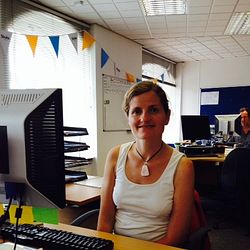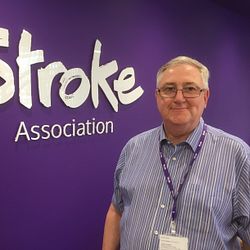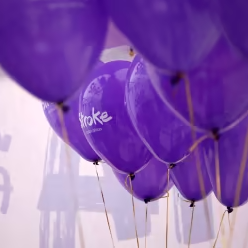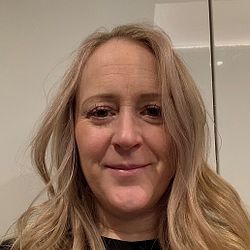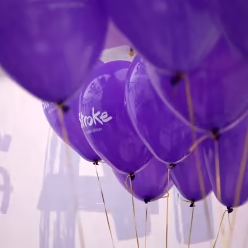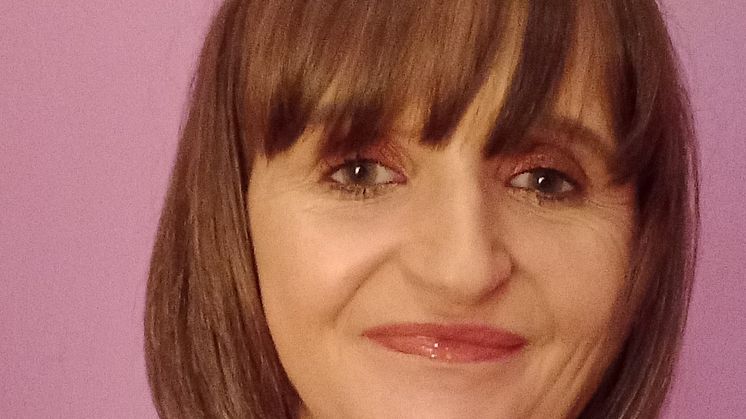
Press release -
Hope after a stroke: Nearly a quarter of Scottish stroke survivors lost their job after their stroke with some even losing their home or partner – but having ‘hope’ is critical to recovery
The practical, emotional and physical impact of having a stroke has been laid bare by a new survey of over 3,500 stroke survivors across the UK (220 respondents from Scotland), released today. The research, conducted by the Stroke Association ahead of World Stroke Day (29 October), is part of a renewed call for vital funds to help the charity give more survivors hope after their stroke and help them to rebuild their lives.
The impact on survivors in Scotland
The research reveals that 23% of those in Scotland who survived a stroke say it directly led to them losing their job whilst 5% say it led to them losing their home.
Furthermore, almost one in five (19%) say it had a negative impact on their relationship. It is not only relationships with partners that are affected – over one in ten (12%) say they lost friends as a result of having a stroke.
Younger survivors more severely impacted
Looking at stroke survivors across the UK, the research reveals that the emotional impact of a stroke can impact younger survivors more severely. Amongst those under the age of 50, six in ten (60%) say that they’ve never emotionally recovered from the impact of their stroke. This compares to 44% for those over the age of 50.
This is despite a similar number of younger stroke survivors under the age of 50 (52%) and over the age of 50 (50%) saying they have not physically recovered from their stroke.
The importance of hope
The research shows the importance and transformative power of feeling hope after having a stroke. Over three quarters of those surveyed in Scotland (77%) say that hope played an important or critical part in their recovery.
But for many, it was not a quick process. Whilst 15% say they began to feel hope after a month since their stroke, a quarter (25%) say it took more than a year to experience what they felt was the first sign of hope. Meanwhile one in ten (11%) say they have never felt hopeful since they had their stroke – demonstrating how strokes can impact survivors differently.
The Stroke Association helps people to find the hope they need to rebuild their lives through specialist services, including a Helpline, peer support service, support groups and Support Coordinators.
Louise Copland, 36 from Glasgow, had her stroke six years ago. The effects of her stroke were dramatic. She couldn’t walk or talk.
She said: “At the time I was terrified, I had no idea what was going on, but I got the impression it was a big deal, which made me very anxious.
My family and the physiotherapists were marvellous. I’ll never forget standing up for the first time. It felt weird and I was dizzy, but it was exhilarating. I had to call my parents to give them this fantastic news and they immediately got in the car to go to the hospital and share my happiness and excitement. This was my first moment of hope that there might be light at the end of the tunnel.
I was due to get married two months later and was determined to walk down the aisle with Dad. I focused all my attention on being able to walk again. I did it. This was the biggest moment of hope I’ve had since my stroke and it gave me the impetus to carry on.
But Louise knows she probably won’t ever recover emotionally after her stroke.
“I wake up every morning with an arm and leg that don’t work like the way they did. I fear the challenges in forming new relationships – my confidence has been dashed and people do judge you for having a disability which is demeaning.
Louise continues to find moments of hope and lives her life to the full. She would have been lost without the support of friends and family. She now attends a stroke club where she gets to meet others in a similar situation to herself.
“The people I meet at the café are so welcoming. They understand the issues I’m dealing with, because they are dealing with them too. It’s important to find hope in others. It’s important to ask for help when you need it and it is out there. There is hope after stroke.”
Big and small moments of hope
The research found that it can be both big and small moments of hope that are important. When asked what gave them their firstmoment of hope after a stroke, nearly one in five, (19%) said it was being able to use their affected side for the first time and 11% said it was being able to speak again. However, one in ten (10%) said it was being able to complete a small every day task such as making a cup of tea.
Reevaluating what is important after a stroke
The impact of a stroke leads many to reevaluate what is important in life. Over half (54%) say having a stroke made them appreciate their life more, 43% say it made them appreciate their family more and 42% say it made them appreciate the importance of looking after their health.
John Watson, Associate Director Scotland at the Stroke Association said: “Every five minutes, someone in the UK will have a stroke and, in a flash, their life is changed. There are more than 128,000 stroke survivors living in Scotland and two thirds of people who survive a stroke find themselves living with a disability. The physical impact of a stroke is severe, but for many, the emotional aspects of coming to terms with having a stroke are just as significant. As the research makes clear, finding hope is a crucial part of the recovery process. Without it, recovery can seem impossible.
“At the Stroke Association, we support and help people to find this hope, and rebuild their lives. But with 1.3m people and rising in the UK now living with the effects of a stroke, our services have never been more stretched. We urgently require the support of the public to help us continue to support stroke survivors to rebuild their lives.”
The Stroke Association is asking those who can to donate today so that it can reach more stroke survivors and give them the specialist support they need to find hope and move forward with their recovery. Visit stroke.org.uk/hopeafterstroke
Topics
- Stroke strikes every five minutes in the UK and it changes lives in an instant.
- The Stroke Association is a charity working across the UK to support people to rebuild their lives after stroke. We believe that everyone deserves to live the best life they can after stroke. From local support services and groups, to online information and support, anyone affected by stroke can visit stroke.org.uk or call our dedicated Stroke Helpline on 0303 3033 100 to find out about support available locally.
- Our specialist support, research and campaigning are only possible with the courage and determination of the stroke community and the generosity of our supporters. With more donations and support, we can help rebuild even more lives.
- · You can follow us on Twitter, Facebook , Instagram and LinkedIn

